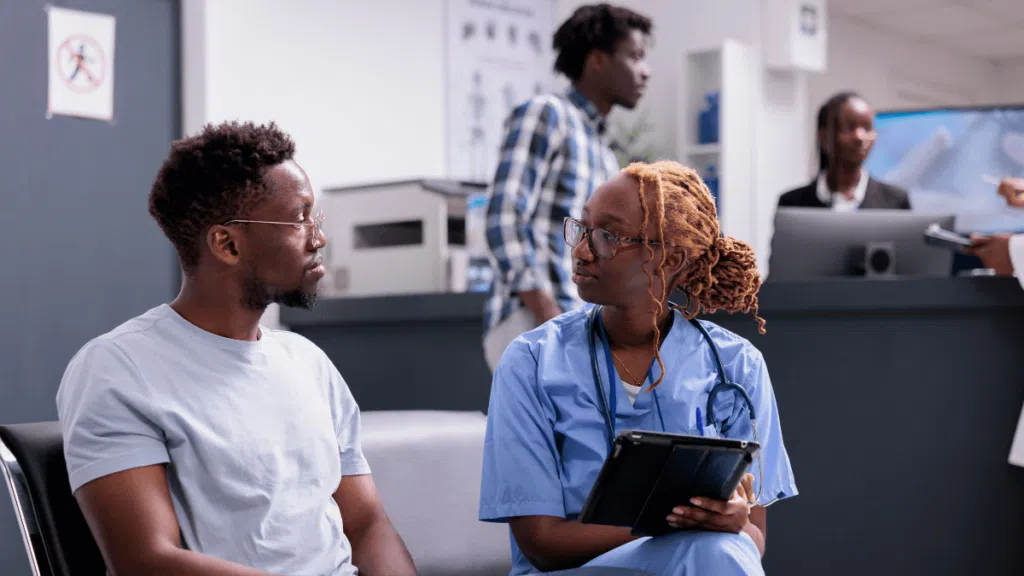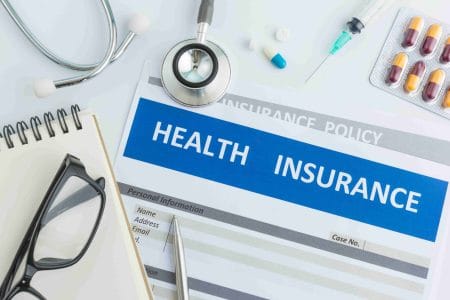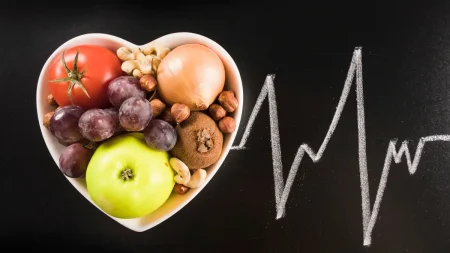In our communities, advice about health often travels by word of mouth — from a neighbour, a parent, a friend at church, or even someone at the taxi rank. While some of this advice may be based on truth or experience, many health tips we hear are actually myths. These misconceptions, if followed, can be dangerous or even life-threatening.
It’s time to separate fact from fiction. In this article, we debunk 19 of the most common health myths in South Africa across nutrition, vaccines, HIV/AIDS, breast cancer, and menstruation — to help you and your family live healthier, safer lives.
Myths About Nutrition
1. “All fat is bad.”
False. Not all fats are created equal. While unhealthy trans fats and saturated fats (found in fried snacks and baked goods) should be limited, your body needs healthy fats from foods like avocados, nuts, seeds, olive oil, and fish such as pilchards or salmon. These good fats support heart health, brain function, and hormone production.
2. “Gluten-free foods are always healthier.”
False. Unless you’ve been diagnosed with celiac disease or a gluten sensitivity, there is no benefit in cutting out gluten. Many gluten-free products are actually lower in fibre and essential nutrients. Whole grain pap, brown bread, and samp remain nutritious choices when consumed in moderation.
3. “Salt must be completely avoided.”
False. Your body needs a small amount of salt (sodium) to support nerve and muscle function. The danger comes from consuming too much, which can increase the risk of high blood pressure. Use salt sparingly and flavour your food with garlic, lemon, herbs, and spices.
4. “Supplements are better than food.”
False. While supplements may help in cases of deficiency, a balanced diet is still the best way to get the nutrients your body needs. Colourful meals filled with vegetables, fruits, whole grains, and lean protein will provide most people with all essential vitamins and minerals. Only take supplements when recommended by a healthcare provider.
5. “Detox diets clean your body.”
False. Your body already has a built-in detox system — your liver and kidneys. You don’t need special teas or expensive juice cleanses, which can even be harmful if used excessively. Instead, drink plenty of water, eat fresh food, and reduce alcohol and sugar intake.
Vaccine Myths
6. “Vaccines are not safe.”
False. Vaccines are rigorously tested and approved by health authorities like SAHPRA (South African Health Products Regulatory Authority) and the World Health Organization. They are safe and help protect communities from deadly diseases.
7. “Vaccines cause autism.”
False. This harmful rumour came from a discredited and fraudulent study. Multiple scientific reviews have confirmed that vaccines do not cause autism. They are essential for childhood and adult disease prevention.
8. “Natural immunity is better.”
False. While natural immunity can occur after infection, the risk of severe illness or death is high. Vaccines offer a safer way to build immunity without getting sick. For example, diseases like measles and COVID-19 can have long-term effects or be fatal.
9. “Young and healthy people don’t need vaccines.”
False. Even healthy individuals can get sick and transmit disease to others. Vaccination protects you and vulnerable people around you — like the elderly or immunocompromised.
10. “Flu vaccines give you the flu.”
False. Flu shots don’t contain live viruses. You might feel mild side effects like a sore arm or slight fever, but you cannot get the flu from the vaccine.
11. “You only need one flu shot in your life.”
False. The flu virus changes every year. That’s why it’s important to get a new flu vaccine annually for effective protection.
HIV/AIDS Myths
12. “You can get HIV from touching someone.”
False. HIV is not spread through casual contact like handshakes, hugs, or sharing toilets. It is transmitted through unprotected sex, sharing needles, and from mother to child during childbirth or breastfeeding if not treated.
13. “Traditional medicine can cure HIV.”
False. While traditional remedies may help manage symptoms, there is no cure for HIV. The only proven treatment is antiretroviral therapy (ART), which allows people with HIV to live long, healthy lives.
14. “Sleeping with a virgin cures HIV.”
False. This dangerous myth has led to horrific abuse, especially of young girls. It has no scientific basis and is completely false. It spreads the virus further and causes trauma and violence.
Breast Cancer Myths
15. “Breast cancer cannot be treated.”
False. Breast cancer can be treated, especially when caught early. South African clinics and hospitals offer screening and treatment options. Early detection increases the chances of survival, so don’t delay getting checked.
16. “Black women don’t get breast cancer.”
False. Breast cancer affects women of all races. While some risk factors vary, many black South African women are diagnosed each year. Awareness and regular screening are crucial for everyone.
Menstruation Myths
17. “Period blood is dirty.”
False. Menstrual blood is just like any other body fluid. It’s part of the natural menstrual cycle and does not make a woman unclean. Stigma around periods can prevent girls from accessing proper hygiene and support.
18. “You shouldn’t talk about periods.”
False. Talking about menstruation is important. It helps girls and women get access to sanitary products, understand their bodies, and break the silence and shame often surrounding the topic.
19. “Starting your period means you’ve had sex.”
False. Menstruation is a biological sign that a girl’s body is maturing. It has absolutely nothing to do with sexual activity. Spreading this myth leads to misunderstanding and unnecessary stigma.
Check also: Common Myths About UIF Debunked in 2025
Health is one of our most precious resources, and we all deserve access to accurate, trustworthy information. Myths and misinformation can lead to harmful behaviours and delayed treatment. By understanding the facts, you can make better choices for yourself, your family, and your community.
Let’s break the cycle of misinformation. Talk to your healthcare provider, read from trusted sources like the Department of Health or the World Health Organization, and share the truth in your community. Knowledge is power — and in matters of health, it can save lives.










